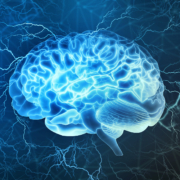Best of BrainWise in 2024
With 2025 in full swing, we reflect on the last year filled with profound insights and discoveries shared through BrainWise. Here’s a recap of our five most-read articles of 2024, each of which contributed to advancing our understanding of the brain and its complexities.
Honoring a Legacy – From Expert to Patient: Dr. Tresa Roebuck Spencer’s Journey
This article provided a deeply personal glimpse into Dr. Tresa Roebuck Spencer’s life after her diagnosis with glioblastoma, before her passing in 2024. Known for her extensive work in neuropsychology, Dr. Spencer’s experience as a patient shed light on the human side of neurological disorders. She shared, “Facing this illness has expanded my understanding of patient care from a perspective I never expected to explore.” Her colleague, Dr. Johnathan Lee, added, “Dr. Spencer’s bravery and transparency have undoubtedly left an indelible mark on our field.” The article highlighted her contributions and the poignancy of her journey from a neuropsychologist to a patient.
With CTE, Correlation Does Not Equal Causation
This piece dissected the complexities surrounding Chronic Traumatic Encephalopathy (CTE) research. It cautioned against oversimplified media narratives and emphasized rigorous scientific inquiry. Dr. Helen Brookes stated, “It’s crucial to understand that not every athlete exposed to head impacts will develop CTE; the relationship is not straightforward.” Furthermore, Dr. Aaron Schmidt remarked, “The media often overlooks the nuance in our findings, which can mislead the public about the risks associated with contact sports.”
The intersection of AI and neuropsychology promises significant advancements in understanding and treating brain disorders. The article explained how AI can enhance diagnostic precision and tailor treatments to individual needs. Dr. Emily Tran noted, “AI’s ability to analyze vast datasets can unearth patterns that would take humans much longer to identify.” Meanwhile, Dr. Richard Kim cautioned, “While AI introduces incredible opportunities, we must remain vigilant about the ethical implications and ensure these tools are used responsibly.”
The Benefits of Early Intervention in Neurodivergent Children
Highlighting the transformative power of early intervention, this article provided compelling evidence and expert opinions on its necessity. Dr. Laura Philips asserted, “Early intervention not only supports developmental gains but also reduces the need for more intensive support later in life.” Dr. Samuel Gershon added, “These programs are investments in our children’s futures, enabling them to utilize their unique talents and capabilities fully.”
Why a Mediterranean Diet is Good for Your Brain
Focused on the cognitive benefits of the Mediterranean diet, this article offered both scientific findings and practical advice. Dietitian Maria Gonzalez stated, “Adhering to a Mediterranean diet can reduce inflammation and oxidative stress, which are culprits in cognitive decline.” Neurologist Dr. Alex Rinehart elaborated, “Patients who switch to this diet often report better focus and clearer thinking, likely due to improved vascular health.”
These articles not only informed our readers but also sparked conversations about important issues in brain health and neuropsychology. We invite you to revisit these enlightening pieces as we continue to explore the fascinating world of brain science together. The BrainWise team wishes you a very happy new year.









